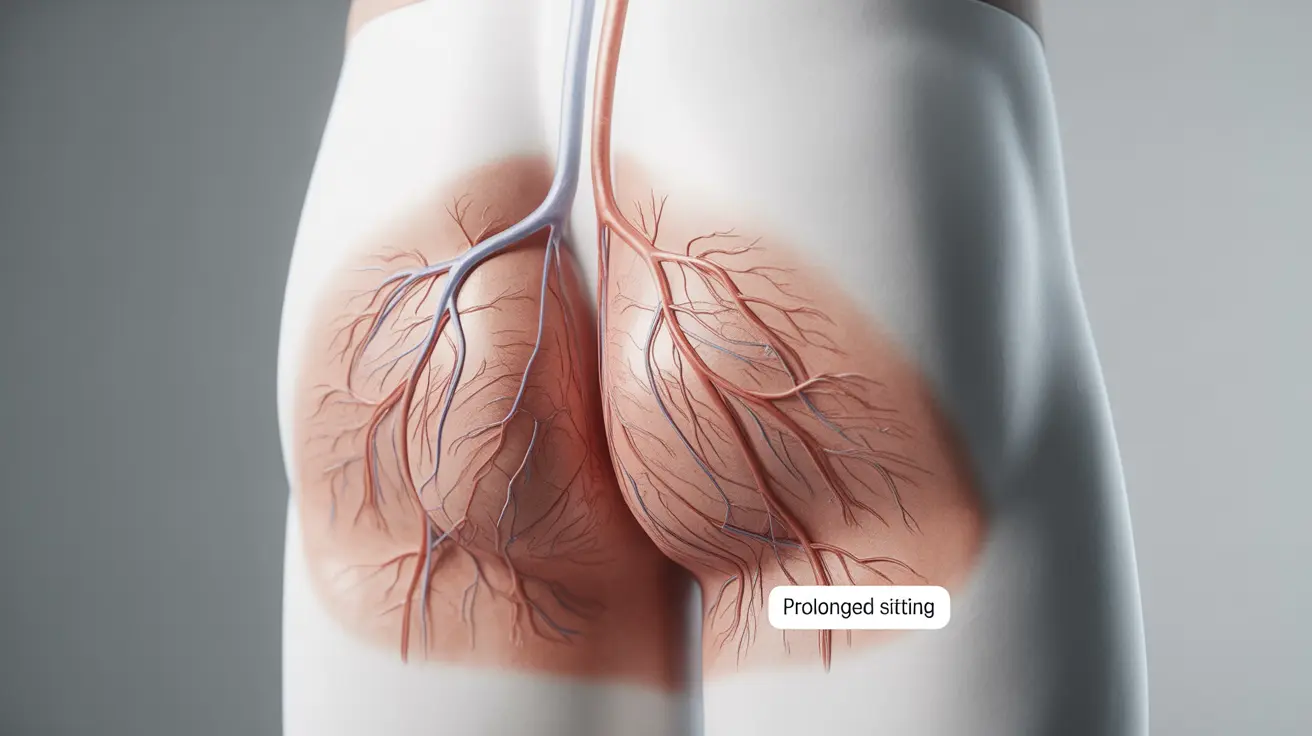Many people have developed the habit of extending their bathroom visits, often due to smartphone use or other distractions. However, this common behavior raises an important health concern: can you get hemorrhoids from sitting on the toilet too long? Understanding this risk and its implications for your health is crucial for preventing potentially painful complications.
Medical experts confirm that prolonged toilet sitting can indeed contribute to hemorrhoid development and exacerbate existing ones. This article explores the connection between extended toilet time and hemorrhoids, offering practical advice for maintaining better bathroom habits.
Understanding the Link Between Toilet Sitting and Hemorrhoids
When you sit on the toilet for extended periods, several factors contribute to hemorrhoid development:
- Increased pressure on the anal area
- Weakening of supporting tissues
- Disrupted blood flow to the rectal area
- Straining during prolonged bowel movements
The toilet's design creates a position that puts additional pressure on your anal blood vessels, especially when sitting for longer than necessary. This pressure can cause the vessels to swell and potentially develop into hemorrhoids.
The Impact of Modern Technology on Bathroom Habits
The widespread use of smartphones in the bathroom has significantly changed our toilet habits. Many people now spend excessive time scrolling through social media, reading, or playing games while on the toilet, unknowingly putting themselves at risk for hemorrhoid development.
Common Bathroom Distractions That Increase Risk
- Smartphone usage
- Reading books or magazines
- Tablet use
- Gaming devices
Prevention Strategies and Best Practices
To minimize your risk of developing hemorrhoids from extended toilet sitting, consider these essential guidelines:
Recommended Toilet Habits
- Limit bathroom visits to 5-10 minutes maximum
- Avoid bringing electronic devices to the bathroom
- Only sit on the toilet when necessary
- Don't strain during bowel movements
Lifestyle Modifications
Several lifestyle changes can help prevent hemorrhoids:
- Maintain adequate fiber intake
- Stay properly hydrated
- Exercise regularly
- Establish a consistent bathroom routine
Warning Signs and When to Seek Medical Help
Being aware of hemorrhoid symptoms is crucial for early intervention. Watch for:
- Rectal pain or discomfort
- Bleeding during bowel movements
- Itching or irritation around the anal area
- Lumps near the anus
Frequently Asked Questions
Can sitting on the toilet for too long really cause hemorrhoids?
Yes, prolonged toilet sitting can cause hemorrhoids by increasing pressure on the anal blood vessels and disrupting normal blood flow to the area. This pressure, combined with the position of sitting on a toilet, can lead to the development or worsening of hemorrhoids.
How does using a smartphone on the toilet increase my risk of hemorrhoids?
Using smartphones on the toilet typically leads to extended sitting time, which increases pressure on the anal area. This prolonged pressure, combined with potential straining, significantly raises your risk of developing hemorrhoids.
What are the best ways to prevent hemorrhoids related to toilet sitting and bowel habits?
The most effective prevention methods include limiting toilet time to 10 minutes or less, avoiding distractions like smartphones, maintaining a high-fiber diet, staying hydrated, and establishing regular bowel habits. Regular exercise also helps prevent constipation and reduces hemorrhoid risk.
How long should I spend on the toilet to avoid developing hemorrhoids?
Medical experts recommend limiting toilet time to no more than 5-10 minutes per visit. Staying longer increases pressure on the anal area and raises your risk of developing hemorrhoids.
What symptoms should prompt me to see a doctor about hemorrhoids caused by extended toilet sitting?
Seek medical attention if you experience persistent rectal bleeding, severe pain or discomfort, chronic itching, or notice lumps around the anal area that don't improve with home treatment. Also consult a healthcare provider if symptoms interfere with daily activities or worsen over time.




